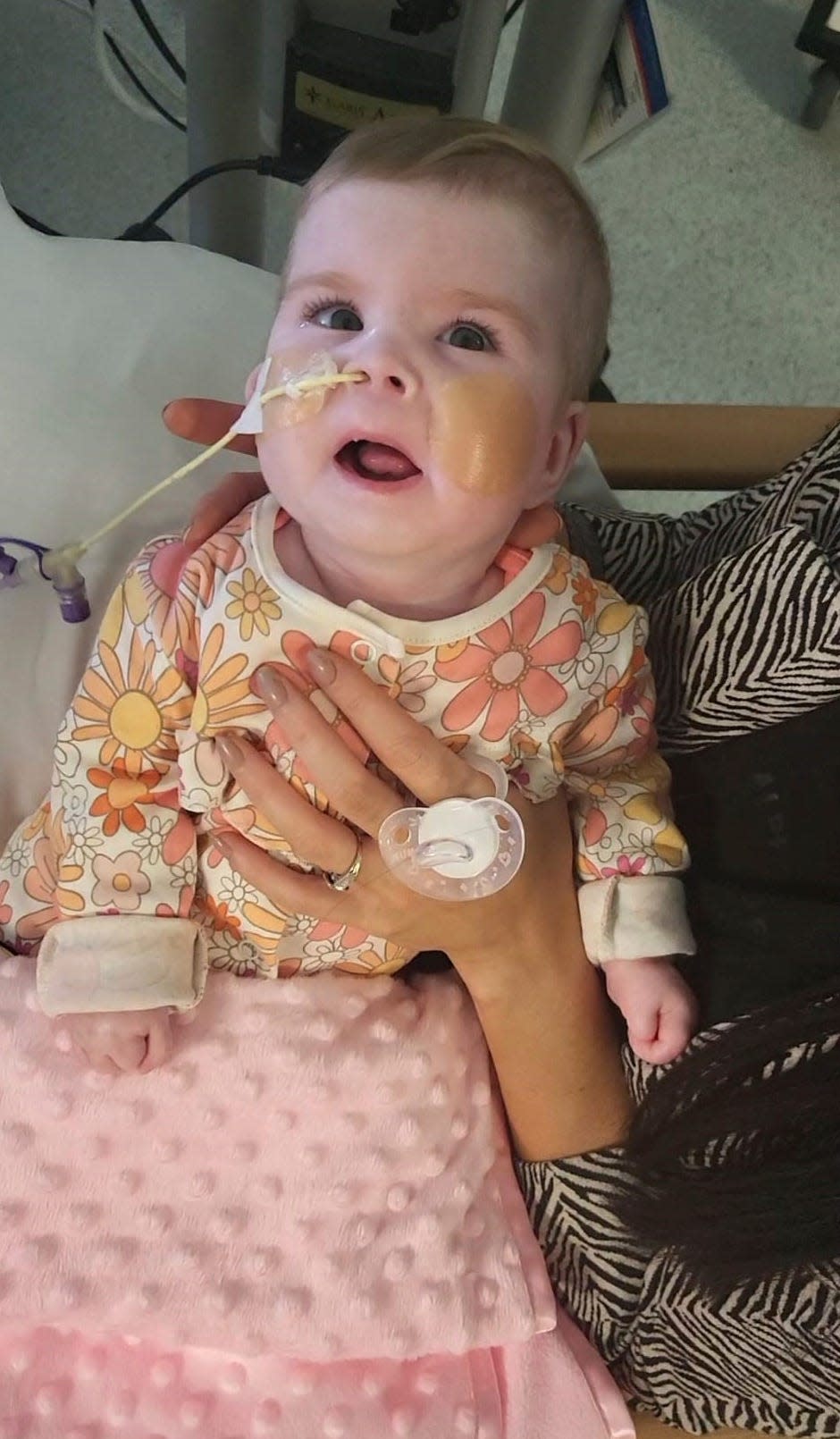Critically ill 8-month-old removed from life support after parents battle in court in UK
A critically ill 8-month-old in the United Kingdom has been removed from life support following a contentious legal battle to have her transferred to Italy for treatment.
Christian Concern, an organization representing the family of Indi Gregory, said she had been transferred from the Queen’s Medical Centre in Nottingham to a hospice and removed from life support following a court ruling on Friday.
"She is fighting hard," her father said in a press release.
Despite appeals from Indi's parents, Dean Gregory and Claire Staniforth, and the Italian government to transfer her to Bambino Gesu Children’s Hospital in Rome, U.K. judges ruled to end her life support, the Associated Press reported.
Her parents also petitioned to take her home to die. That appeal was also denied, the BBC reported.

More: Declaring a child brain dead can prompt showdowns. New rules seek to resolve those doubts.
Judges say rule based on the best interest of the child
Court of Appeal Justice Peter Jackson criticized the parents' use of legal tactics in opposition to the courts order, AP reported.
Doctors caring for Indi, who has mitochondrial disease, said she has no awareness of her surroundings and is suffering. Specialists said her treatment caused pain and was ineffective, the BBC reported.
They advised that she be allowed to peacefully die. Her parents had sought to send her to Italy for experimental treatment that could prolong her life.
More: Texas mother 'heartbroken' when judge says hospital can remove baby girl from life support
Jackson said doctors were put in a “extremely challenging” position by what he called “manipulative litigation tactics," the AP reported. He said judges make decisions on cases like Indi's with careful consideration of the child's best interest.
What is mitochondrial disease?
Mitochondrial diseases or disorders refer to a condition where the mitochondria, tiny parts of the cell, malfunction, according to the Centers for Disease Control and Prevention.
The mitochondria's role is to produce energy. In mitochondrial disease, the mitochondria are unable to efficiently turn oxygen and sugar into energy, causing the cells to not work properly.
There are many types of mitochondrial disease that can affect different parts of the body, including the brain, heart, kidneys and muscles.
Some youths with a mitochondrial disease may not show any symptoms. For others, symptoms vary based on what cells have malfunctioning mitochondria.
Symptoms can include fatigue, weakness, metabolic strokes, seizures, cardiomyopathy, arrhythmias, developmental or cognitive disabilities, diabetes and impairment of hearing, vision, growth, liver, gastrointestinal or kidney function.
This article originally appeared on USA TODAY: UK judges rule to remove 8-month-old Indi Gregory off life support

